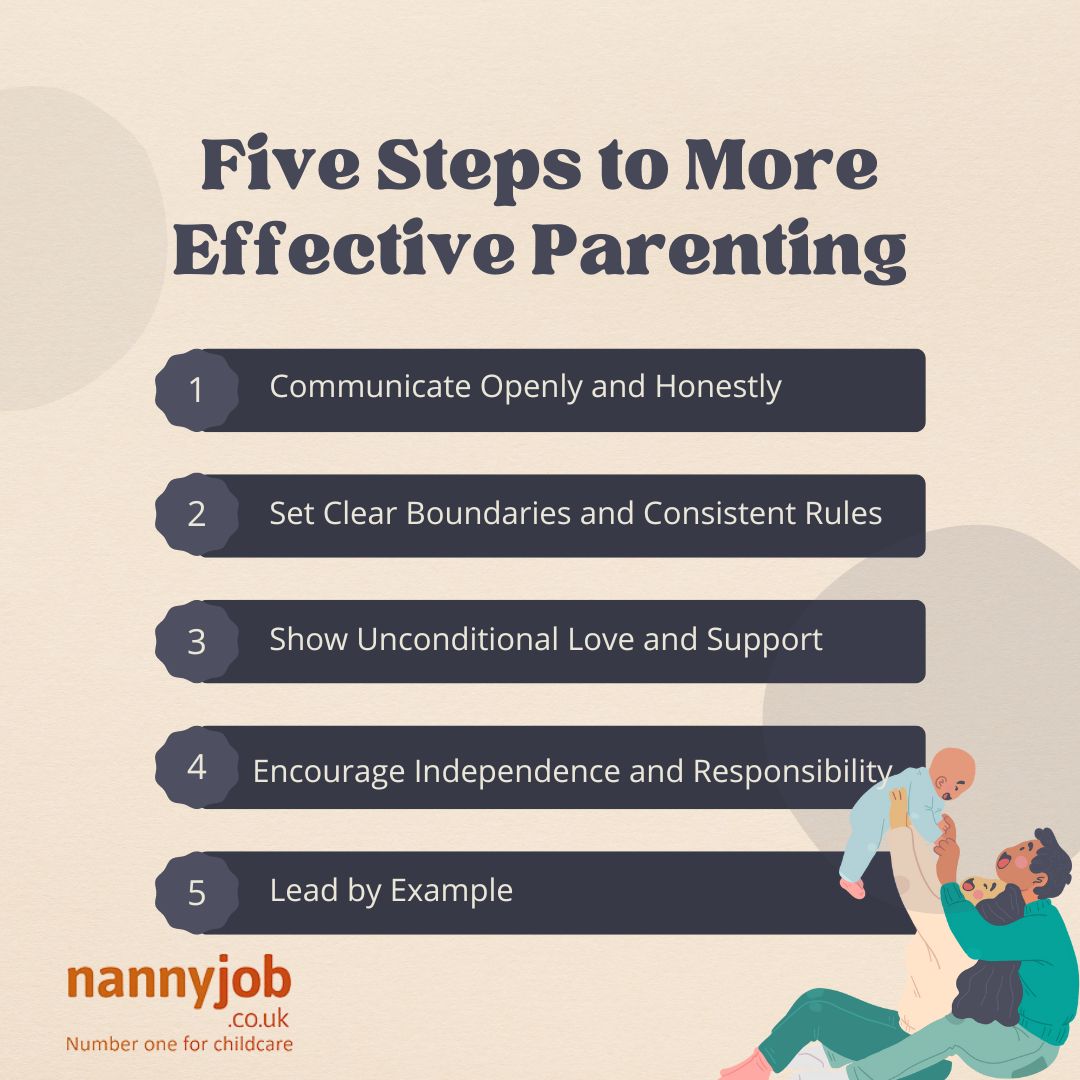Introduction
Parenting is a journey filled with joys, challenges, and continuous learning. While there’s no one-size-fits-all approach, certain strategies can help you navigate the complexities of raising children more effectively. By focusing on communication, boundaries, love, and leading by example, you can create a nurturing environment that supports your child’s growth and development. Here are five steps for more effective parenting that can make a meaningful difference in your family life.
1. Communicate Openly and Honestly
Open communication is the cornerstone of a strong parent-child relationship. Encourage your child to express their thoughts and feelings without fear of judgment. Listen actively and validate their emotions, even if you don’t always agree. This approach fosters trust and helps children develop healthy communication skills that will serve them throughout life.
2. Set Clear Boundaries and Consistent Rules
Children thrive in environments where they understand the expectations and boundaries. Establish clear rules and be consistent in enforcing them. Consistency helps children feel secure and understand the consequences of their actions. While it’s important to set boundaries, it’s equally important to explain the reasons behind them, helping children learn the value of discipline and self-control.
3. Show Unconditional Love and Support
Unconditional love is the foundation of effective parenting. Show your child that they are loved and valued, regardless of their behavior or achievements. This doesn’t mean overlooking mistakes, but rather supporting them through challenges and celebrating their efforts. Knowing they are loved unconditionally boosts a child’s confidence and self-esteem, helping them navigate life’s ups and downs with resilience.
4. Encourage Independence and Responsibility
Allow your child to take on age-appropriate responsibilities and make decisions for themselves. This fosters independence and teaches them important life skills. Whether it’s letting a toddler pick out their clothes or encouraging a teenager to manage their homework, giving children responsibility helps them develop problem-solving skills and a sense of accountability.
5. Lead by Example
Children learn by watching their parents. Model the behavior you want to see in your child, whether it’s kindness, honesty, or a strong work ethic. Demonstrate how to handle challenges with grace, how to treat others with respect, and how to approach life with a positive attitude. Your actions often speak louder than words, so be the role model your child needs.
Conclusion
Effective parenting involves a balance of communication, boundaries, love, and guidance. By following these five steps, you can create a supportive and nurturing environment that helps your child thrive. Remember, parenting is a journey that evolves as your child grows, so stay open to learning and adapting along the way.

